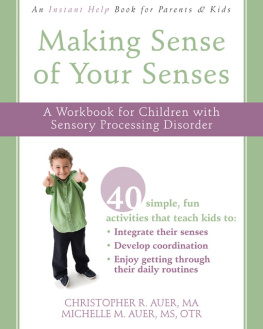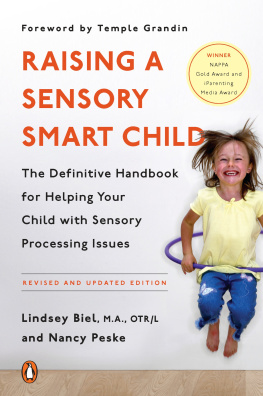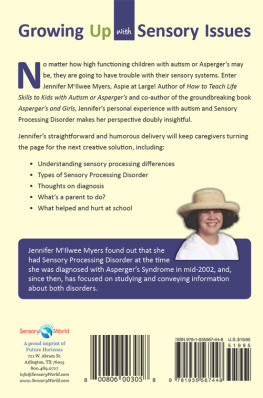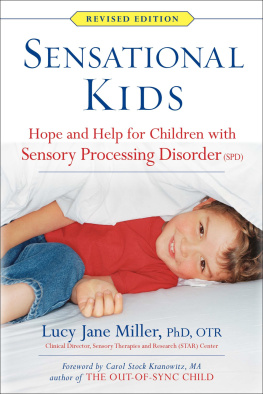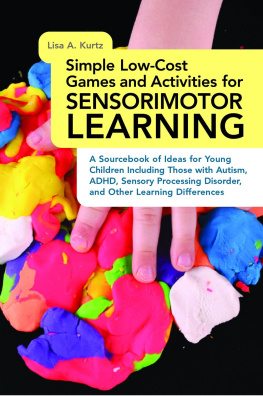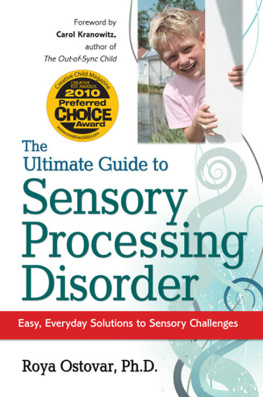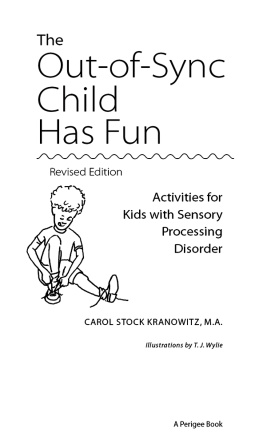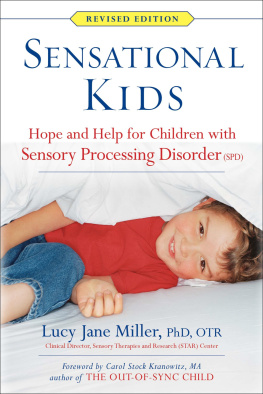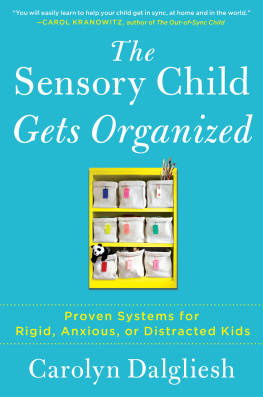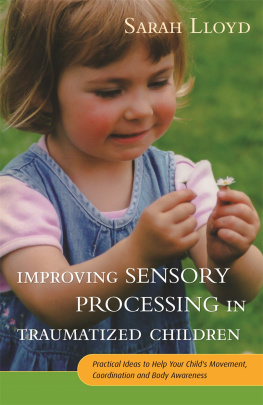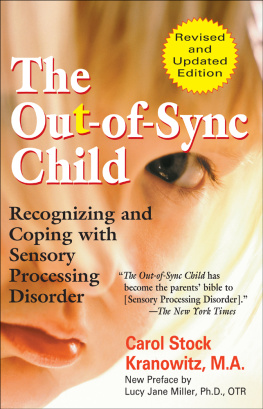Christopher R. Auer, MA, is the disabilities and mental health administrator for the Head Start program in the Denver Mayors Office for Education and Children. He is also affiliate faculty at Regis University and coauthor of Parenting a Child with Sensory Processing Disorder. He is a regular presenter at national conferences.
Michelle M. Auer, MS, OTR, is an occupational therapist for a school district in the Denver area. She also maintains a private practice providing hippotherapy for children.

This entertaining and practical workbook encourages children to follow their natural urge to explore and experiment in order to discover how they experience their world through their senses and to master the feelings that result. As parents work on the exercises with their children, they will find that they understand their children in new ways and perhaps themselves better, as well. In our too-loud, too-bright, too-hurried world, understanding our sensory responses and learning to protect ourselves from overstimulation are important skills for children with special sensory processing challenges, and for the rest of us too.
Joshua Sparrow, MD, Brazelton Touchpoints Center at Children's Hospital Boston
The Auers have used their expertise in helping special needs kids to bring us a truly useful work brimming with practical exercises and worksheets that teachers, parents, and especially children can use immediately to better their lives. I can think of few people who work with children in any capacity who couldn't use this book.
Jeff Stimpson, author of Alex: The Fathering of a Preemie and Alex the Boy: Episodes From A Familys Life With Autism
Sensations That Drive You Nuts! is a sample of the simple language used in this workbook to help children, their families, and teachers understand sensory processing disorder (SPD). Encouraging children to draw how they feel, recognizing that recess can help one do better in school, becoming a self advocate and helping others when they are in need are some of the many wonderful examples the authors provide.
Diana A. Henry, MS, OTR/L, FAOTA, author of the Sensory Tools books and DVDs and coauthor of The Sensory Processing Measures

Publishers Note
This publication is designed to provide accurate and authoritative information in regard to the subject matter covered. It is sold with the understanding that the publisher is not engaged in rendering psychological, financial, legal, or other professional services. If expert assistance or counseling is needed, the services of a competent professional should be sought.
Distributed in Canada by Raincoast Books
Copyright 2010 by Christopher R. Auer and Michelle M. Auer
Instant Help Books
A Division of New Harbinger Publications, Inc.
5674 Shattuck Avenue
Oakland, CA 94609
www.newharbinger.com
Cover design by Amy Shoup
Interior illustrations by Julie Olsen
Cover photograph is a model used for illustrative purposes only.
All Rights Reserved
Epub ISBN: 9781608821785
The Library of Congress has Cataloged the Print Edition as:
Auer, Christopher R.
Making sense of your senses : a workbook for children with sensory processing disorder / Christopher R. Auer and Michelle M. Auer.
p. cm.
ISBN 978-1-57224-836-6 (pbk.) -- ISBN 978-1-57224-837-3 (pdf ebook)
1. Sensory integration dysfunction in children--Treatment--Problems, exercises, etc. I. Auer, Michelle M. II. Title.
RJ496.S44A94 2010
618.92'8--dc22
2010037742
Contents
A Note to Kids
Dear Reader,
My name is Michelle, and I work with kids at their schools. Many of them say that getting through their school day can be hard. Some kids tell me that noises bother them, that they have a hard time sitting or writing, or that they need more space. Others feel that they need to squeeze something, stretch, or move around in order to pay attention. I love it when I can teach them ways to enjoy being a kid.
My husbands name is Chris. He works with teachers, parents, and people who want to be teachers. He does many of the same things at work as I do, except he spends more time with adults who work with children.
We are also parents. Of our three children, one has some of the same challenges at school as the children I work with. At home, he doesnt like certain smells. He hates the feel of certain clothes and thinks its torture to get a haircut. He has a hard time sleeping unless his bed is just right. Hes also smart and funny, and he loves riding his bike.
Your parent or some other adult who cares about you thinks that your reactions to touching, tasting, smelling, hearing, and seeing make your life difficult. Thats where this book comes in. By working through the activities, we hope youll have fun, learn some ways to make life easier, and make sense of your senses. We believe that with some practice, youll start to feel betterand life will get just a little bit easier. Who knowsyou might even be able to help someone else with the new skills youll learn in this workbook!
A Note to Parents
Some people like spicy foods; others dont. Some like vanilla; others prefer chocolate. How we interpret sensory informationthrough touching, tasting, smelling, hearing, and seeingis what makes each of us unique.
Our ability to make sense of this information allows us to learn, to avoid hazards, and to experience pleasure. Approximately 510 percent of people interpret sensory information differently than most of the population. Light touch may arouse panic in one person, while someone at the other end of that spectrum may appear not to feel any sort of pain at all. When responses, or the lack of responses, to sensory information significantly interfere with daily living, the person may have what is known as sensory processing disorder (SPD).
This workbook was written to help children with SPD. Some children with attention-deficit/hyperactivity disorder (ADHD), autism, and other developmental conditions have SPD coexisting with or underlying these diagnoses. Regardless of the cause, the symptoms of SPD can have a serious impact on the functioning of a child and the entire family.
The activities in this book can develop your childs awareness, understanding, and ability to cope with SPD in healthy ways, both at home and at school. Your child can learn to recognize how he responds to different senses and can master self-calming techniques, ways to keep organized, and even strategies to cope with brothers and sisters.
Your child may need your assistance in working through this book. At the least, he will need encouragement to be patient and work at his own pace. When he completes each activity, you can help him celebrate. You can also help by noticing and rewarding efforts to use new skills throughout the day. We hope your child will have fun while learning.
As parents of a child with ADHD and SPD, we know the challenges can be great, but there are many reasons to be hopeful. In overcoming one challenge in life, whether it be coping with loud noises or going to the dentist, your child may realize that others can be conquered as well. Thats an important lesson to learn and one that will help for years to come.
Sincerely,
Christopher R. Auer, MA Michelle M. Auer, MS OTR
[Epub Editor's note:]
Please locate an empty journal or notebook for your child to use with the activities in this book.

